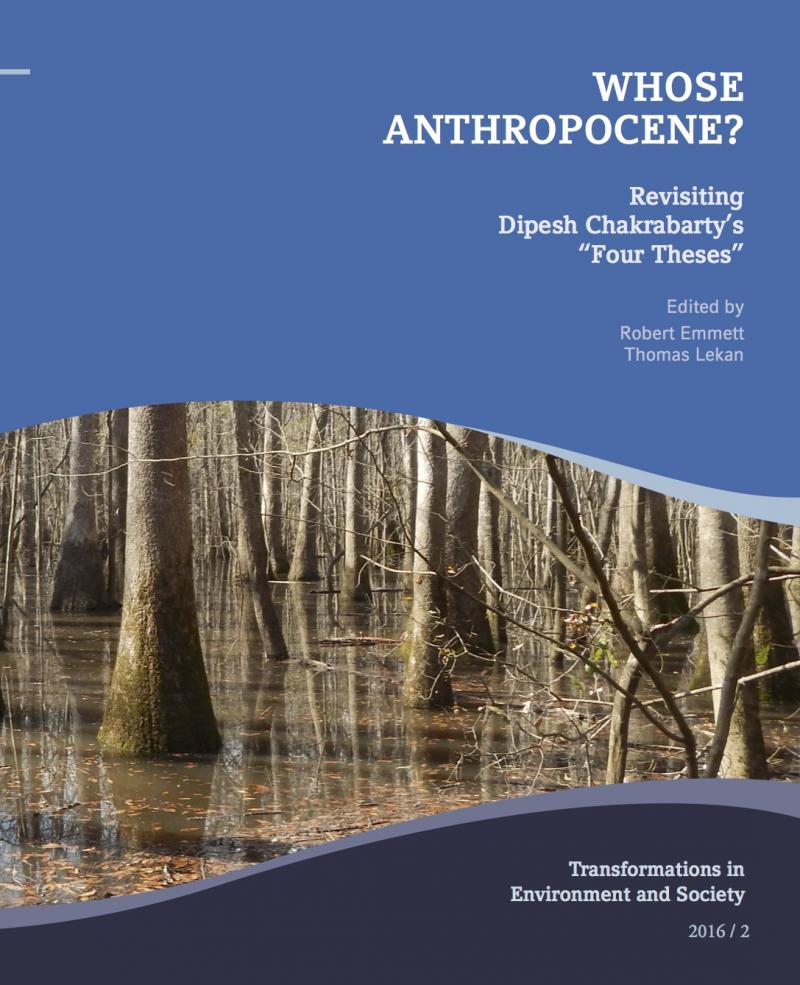About this issue
In “The Climate of History: Four Theses,” Dipesh Chakrabarty examined the idea of the Anthropocene—the dawn of a new geological period dominated by human activities—in the context of history and philosophy, raising fundamental questions about how we think historically in an era when human and geological timescales are colliding. Developing out of a 2015 workshop, this volume of RCC Perspectives offers critiques of these “Four Theses” by scholars of environmental history, political philosophy, religious studies, literary criticism, environmental planning, geography, law, biology, and geology. The essays suggest many ways in which Chakrabarty’s arguments both reflect and further catalyze an ongoing transformation in intellectual culture and research on environment and society in the Anthropocene. The volume concludes with a response to the essays from Chakrabarty himself.
How to cite: Emmett, Robert, and Thomas Lekan, eds.”Whose Anthropocene? Revisiting Dipesh Chakrabarty’s ‘Four Theses,’ ” RCC Perspectives: Transformations in Environment and Society 2016, no. 2. doi.org/10.5282/rcc/7421.

Content
- Foreword and Introduction by Robert Emmett and Thomas Lekan
Breaching the Divide: Human and Natural Histories
- Heralding a New Humanism: The Radical Implications of Chakrabarty’s “Four Theses” by Timothy J. LeCain
- Climate Change and the Confluence of Natural and Human History: A Lawyer’s Perspective by Josh Eagle
- Human Niche Construction and the Anthropocene by Carol Boggs
Politics in/of the Anthropocene
- The Geologic Challenge of the Anthropocene by Lori A. Ziolkowski
- Rifts or Bridges? Ruptures and Continuities in Human-Environment Interactions by Jessica Barnes
- Politics in—but not of—the Anthropocene by John M. Meyer
Species Capital: Consumption in the Anthropocene
- Beyond Corporate Sustainability in the Anthropocene by Carol Hee
- The Politics of Nature in the Anthropocene by Kathleen McAfee
- Politics of Anthropocene Consumption: Dipesh Chakrabarty and Three College Courses by Laura A. Watt
Probing our Limits: Narrative and the Geophysical Imagination
- Imagining Geological Agency: Storytelling in the Anthropocene by Alexa Weik von Mossner
- Anthropocene Convergences: A Report from the Field by Lisa Sideris
- The Crisis of Environmental Narrative in the Anthropocene by Daniel deB. Richter
- Whose Anthropocene? A Response by Dipesh Chakrabarty


